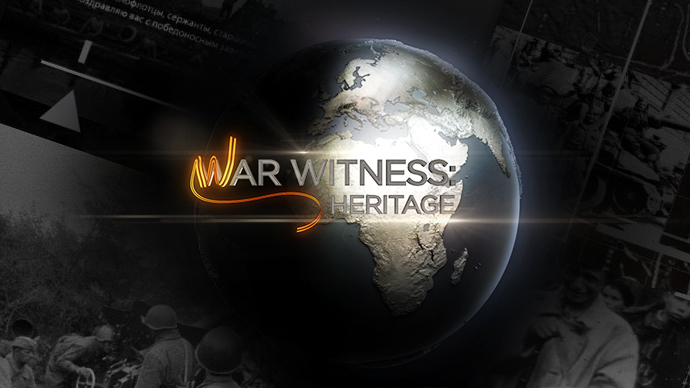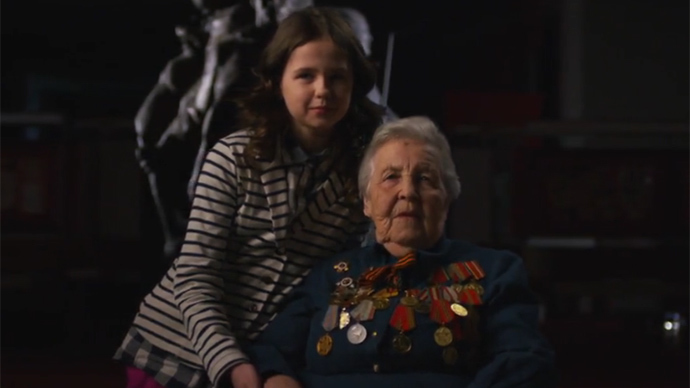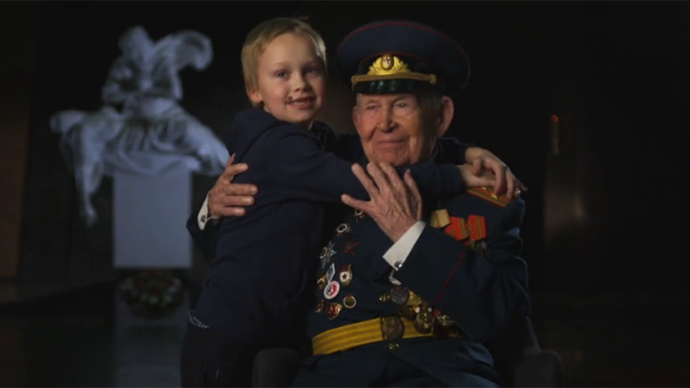‘Our youth not listed among war losses’: RT interviews 70 WWII witnesses

They survived the Great Patriotic War carrying its horrors through their lives. On the eve of the 70th anniversary of victory over Nazi Germany, RT interviewed 70 war witnesses who recount their wartime memories.
Every day until Victory Day on May 9, RT will publish an interview with a war witness telling their WWII story. They all fought at the frontlines, participated in war efforts or witnessed the violence at close quarters when they were still children or teenagers during the Great Patriotic War.
READ MORE at RT's War Witness: Heritage Project
The stories told by war witnesses are accompanied by reactions from their grandchildren, who thank their heroes, wishing they will never have to see the horrors of war.
Stepan Karnaukhov, 90, is among the few surviving veterans who took part in the Operation Bagration in 1944 – one of the most significant offensives in the world’s military history. He recounts that war was first of all extremely hard work “until utter exhaustion.”
“We didn’t know the sweet excitement or a tenderness of the first love. Instead we had wounds and bandages soaked in blood,” he said. “The war stole our youth. That’s not listed among the losses of war.”
During the Siege of Leningrad when Nazi Germany’s army was blockading the city for nearly 2.5 years, deaths by starvation became a part of everyday life. Tatyana Korsakova,78, says she lived under the blockade for two years. She recalls that one had only 125 grams of bread a day and people made soup from wood glue.
She explains that death was in the air in the city: “As spring came we went to the bridge over Fontanka river. And from there we saw corpses floating down the river. And for some reason the kids including me were neither scared of the corpses nor disgusted. It was just a fact of the reality we were living in.”

Anna Pryadkina, 93, participated in the Kerch-Feodosia Landing operation in 1941-42. She recounts how medical operations were carried out. She says that there were no surgical tables – instead people were operated on old camp-beds. Soldiers who desperately wanted water after losing a lot of blood were helped by children who sucked the water from stones.
“How can you defeat such an army, when even the children want to help it?”

Arkady Krupennikov who was only 18 years old during his deployment to the First Ukrainian Front in 1943, says that one of his most vivid memories is how he was shot in the face.
“There was a lot of blood. I thought I was severely injured although I didn’t faint. And when I got to the military hospital...dear God, I realized my wound was nothing compared to what I saw there.”
He also recounts how his battalion got into a fight near Lvov with some Banderites – “they were the Ukrainian fascists, Hitler’s supporters.”
READ MORE: Fear, hunger and heroism: RT interviews 70 War Witnesses for 70th V-Day anniversary












